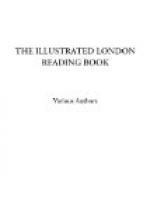Not to enquire about the songs of triumph mentioned even in Romulus’s time, there was certainly something of poetry among them in the next reign, under Numa; a Prince who pretended to converse with the Muses as well as with Egeria, and who might possibly himself have made the verses which the Salian priests sang in his time. Pythagoras, either in the same reign, or if you please some time after, gave the Romans a tincture of poetry as well as of philosophy; for Cicero assures us that the Pythagoreans made great use of poetry and music; and probably they, like our old Druids, delivered most of their precepts in verse. Indeed, the chief employment of poetry in that and the following ages, among the Romans, was of a religious kind. Their very prayers, and perhaps their whole liturgy, was poetical. They had also a sort of prophetic or sacred writers, who seem to have written generally in verse; and were so numerous that there were above two thousand of their volumes remaining even to Augustus’s time. They had a kind of plays too, in these early times, derived from what they had seen of the Tuscan actors when sent for to Rome to expiate a plague that raged in the city. These seem to have been either like our dumb-shows, or else a kind of extempore farces—a thing to this day a good deal in use all over Italy and in Tuscany. In a more particular manner, add to these that extempore kind of jesting dialogues begun at their harvest and vintage feasts, and carried on so rudely and abusively afterwards as to occasion a very severe law to restrain their licentiousness; and those lovers of poetry and good eating, who seem to have attended the tables of the richer sort, much like the old provincial poets, or our own British bards, and sang there to some instrument of music the achievements of their ancestors, and the noble deeds of those who had gone before them, to inflame others to follow their great examples.
[Illustration: ANCIENT ROMAN SHOES.]
[Illustration: ANCIENT ROMAN TORCHES.]
[Illustration: ANCIENT ROMAN DRINKING-BOTTLE.]
[Illustration: ANCIENT ALABASTER BOX.]
The names of almost all these poets sleep in peace with all their works; and, if we may take the word of the other Roman writers of a better age, it is no great loss to us. One of their best poets represents them as very obscure and very contemptible; one of their best historians avoids quoting them as too barbarous for politer ears; and one of their most judicious emperors ordered the greatest part of their writings to be burnt, that the world might be troubled with them no longer.
All these poets, therefore, may very well be dropped in the account, there being nothing remaining of their works, and probably no merit to be found in them if they had remained. And so we may date the beginning of the Roman poetry from Livius Andronicus, the first of their poets of whom anything does remain to us; and from whom the Romans themselves seem to have dated the beginning of their poetry, even in the Augustan age.




